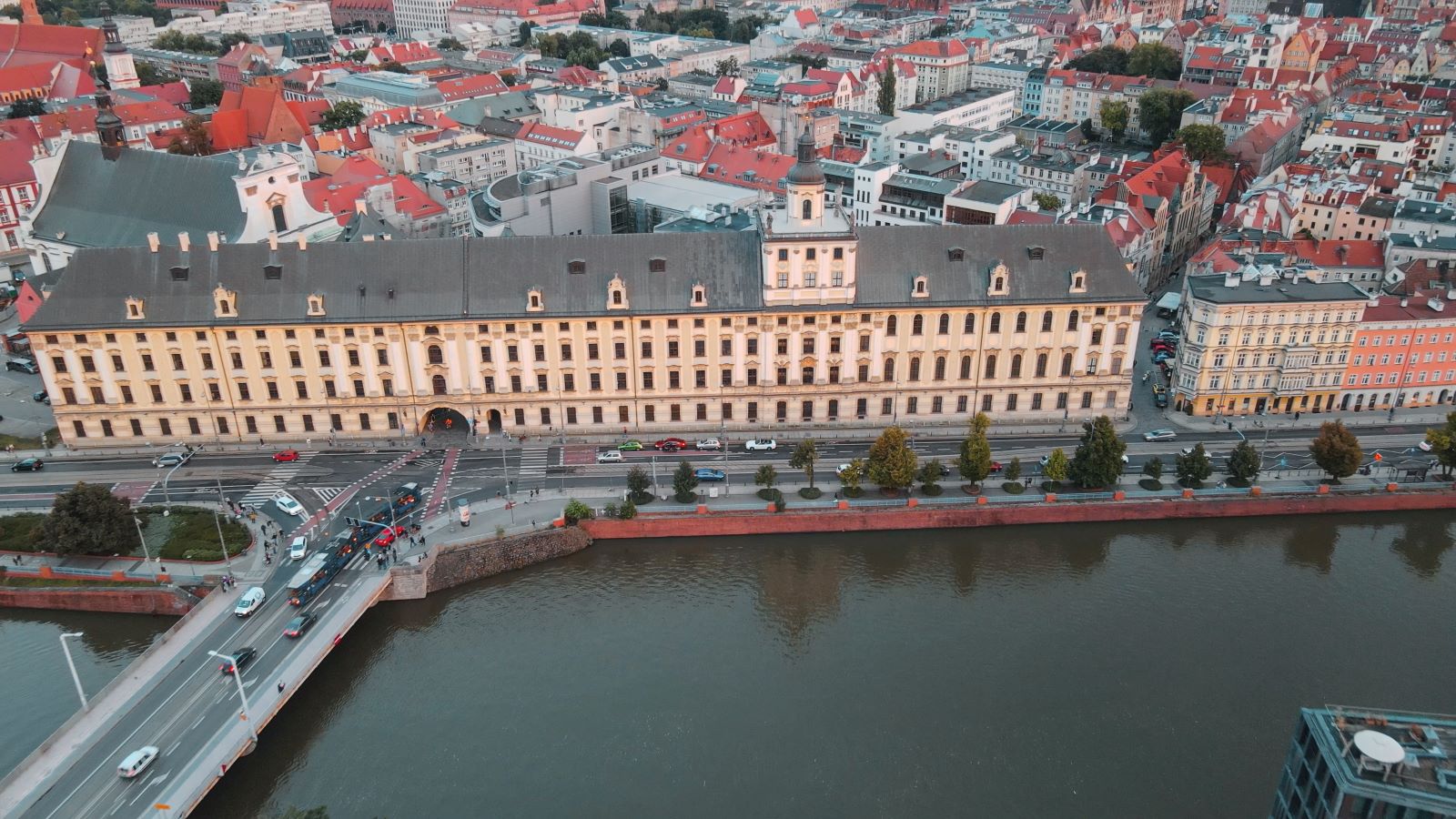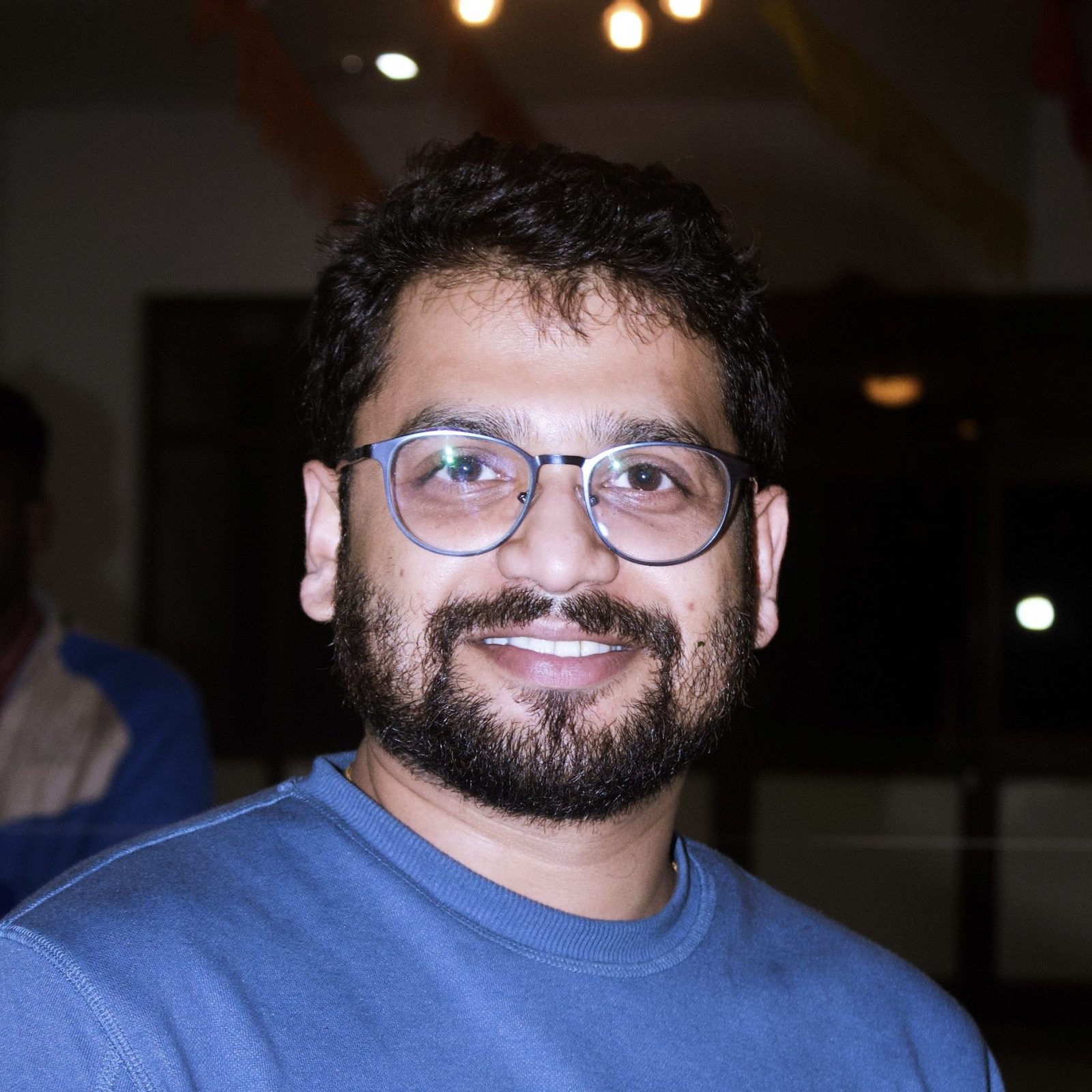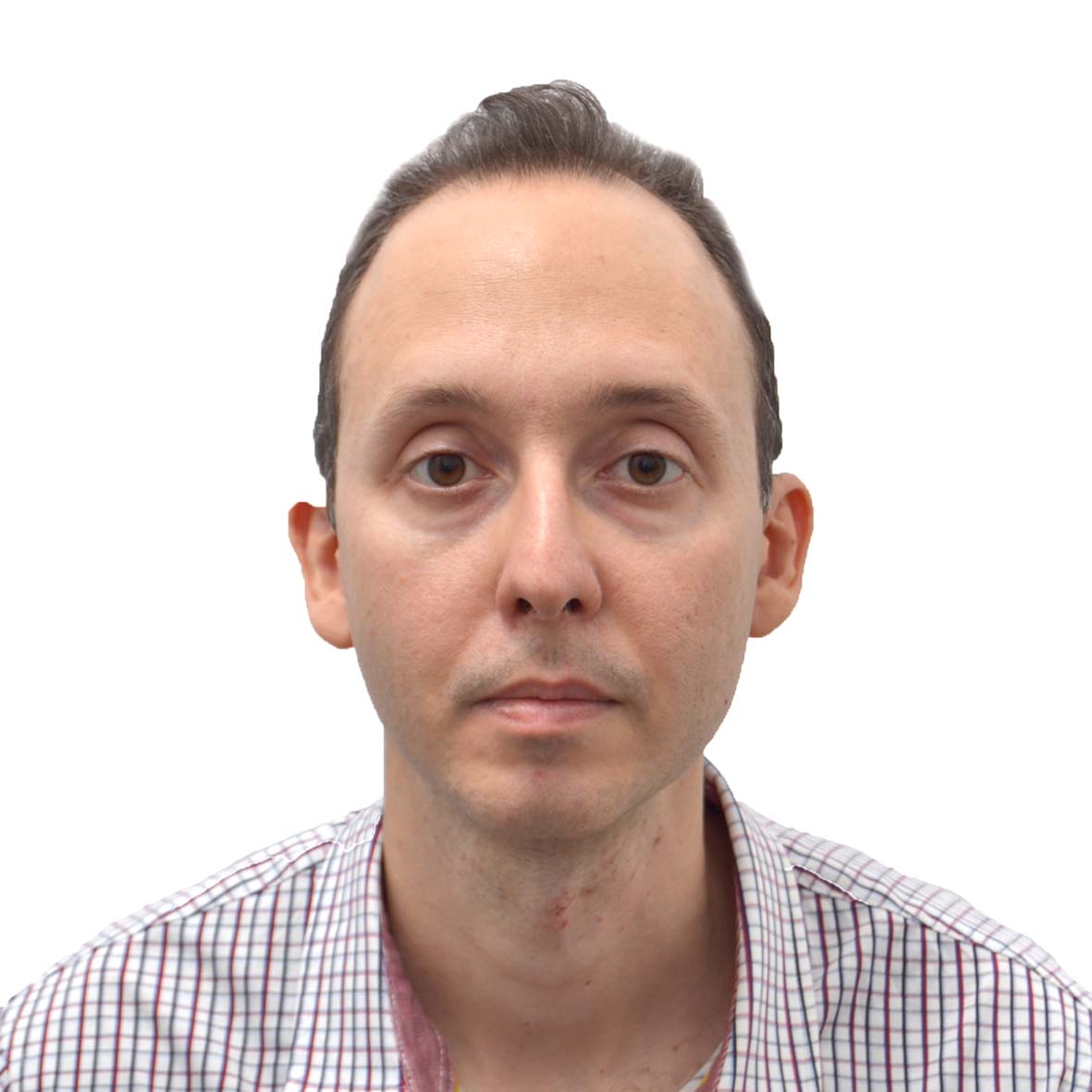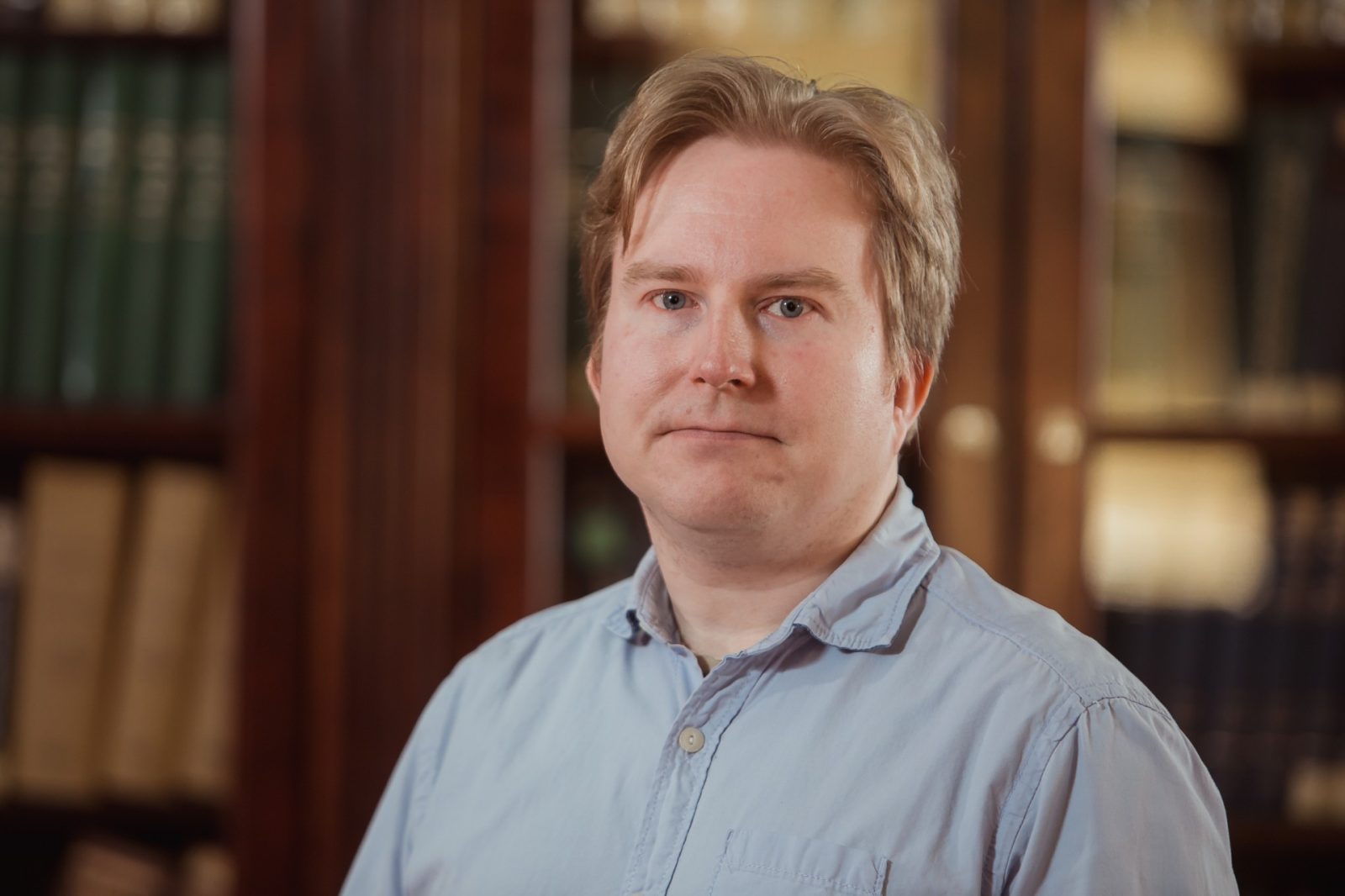
Foreign researchers on internships at the University of Wrocław
In this year’s edition of the Ulam NAWA programme, scholarships were given to 60 researchers from 26 countries who will visit Polish universities and research centres. As a part of this programme, scientists from Venezuela, India, and Finland will come to our university.
At the Faculty of Chemistry, dr Abhik Paul, a graduate of the Indian Institute of Science Education and Research Bhopal (IISER), will undertake a two-year post-doctoral internship in the Organic Supramolecular Chemistry Research Group (www.bszyszko.pl), led by prof. Bartosz Szyszko.

The research group specialises in organic supramolecular chemistry, with a particular focus on chemical systems with mechanically interlocked molecules. The project „Shining light on molecular entanglements”, which was funded by the Ulam NAWA programme, was prepared by dr Abhik Paul together with prof. Bartosz Szyszko. Their goal is to use photoactive functional groups in molecular structures of knots and entanglements. It will allow to reach a high level of control over dynamic and conformation of these entangled structures, and eventually, their reactivity.
In both natural and synthetic systems, light serves as an almost ideal way to stimulate controlled transformations in complex molecular systems. It allows for precise activation of selected molecular regions containing photoactive groups without generating by-products or unwanted waste during reactions.
The Faculty of Chemistry will also welcome dr Edgar Hernan Del Carpio Garcia, a professor from Central University of Venezuela, faculty of pharmacy. His research interests focus on the coordination of complex chemistry with potential for application, particularly in chemical speciation and biological activity of potential therapeutic measures. His project will be conducted together with scientists from the Magnetic Materials Group of the Faculty of Chemistry at the University of Wrocław, under the supervision of prof. Alina Bieńko and dr hab. Urszula Komarnicka.

Professor Del Carpio Garcia is passionate about modern technologies, which he successfully applies in both his research work and teaching. The use of cheminformatics, bioinformatics, and artificial intelligence tools for designing drugs has enabled him to participate in numerous research projects and involve in technological processes for several biotechnological start-ups. He has gained scientific experience at renowned institutions such as Colorado State University (as a visiting professor – Fulbright programme, 2023/2024) and Ghent University in Belgium (2021/2022). An innovative aspect of his functional materials research will be the application of machine learning tools for designing, predicting, and modifying the magnetic properties of phosphine coordination complexes of f-electron metals. This includes finding pathways to “attune” their magnetic parameters, such as energy barriers and relaxation times.
The Faculty of Physics and Astronomy will host dr Jussi Auvinen from the University of Jyväskylä in Finland.

One of the main goals of modern heavy-ion physics is to study the phase diagram and properties of dense, strongly interacting matter. What is particularly interesting is whether the phase transition under such conditions, known as deconfinement, changes from a smooth to an abrupt phase transition. Such a change would indicate the presence of a critical point on the phase diagram.
Dr Jussi Auvinen will analyse strongly interacting matter, specifically whether the critical point (if it exists) leaves marks in the production and disintegration of particles resulting from heavy-ion collisions. Dr Auvinen will conduct his research with the team of dr Pasi Huovinen, head of the Academic Excellence Incubator – Centre for Simulations of Superdense Fluids.
It is a very complicated task because of the number of parameters involved. Dynamic liquid models incorporate not only parameters which describe the physical qualities of the system but also many internal ones, known as “parametric nuisances”.
In the context of heavy-ion physics, Bayesian analysis typically involves not just the application of Bayes’ algorithm in statistical analysis but also the use of model emulators. The first step in Bayesian analysis involves generating hundreds of simulations with various combinations of free parameters.
“It is ‘training data’, which is used to construct a statistical emulator model based on Gaussian processes”, as explained by dr Michał Marczenko from the Academic Excellence Incubator – Centre for Simulations of Superdense Fluids, Faculty of Physics and Astronomy at the University of Wrocław.
About Ulam NAW programme
The aim of the programme, named after Stanisław Ulma, is to increase the level of internationalisation of Polish universities and scientific institutions. It plays an important role in creating an international research collaboration. So far, more than 300 researchers from 50 countries worldwide have received support. The programme provides an opportunity for both experienced and promising scientists to visit Poland. Thanks to the dramme, it is possible to invite researchers from abroad regardless of their age, represented field, or nationality. It also includes Polish researchers who work permanently abroad.
Universities and research institutions can invite to Poland specialists from their priority fields, who will significantly further develop studies of a given institute, strengthen didactic processes, or support an institution in preparing an application for prestigious grants.
The programme allows for visits aimed at conducting scientific research, undertaking post-doctoral internships, gathering materials for research or scientific publications, or teaching classes during the visit.
The stays can last from 6 to 24 months, with the beneficiaries receiving PLN 11,500 monthly and a one-time travel allowance.
The International Cooperation Office assists with the application process and preparation of necessary documents. Once the scholarship is awarded, the beneficiary and their UWr host receive full support from the International Cooperation Office and assistance in organising the arrival. During their stay, the Welcome Point section also helps with non-academic matters.
Prepared by: kg
Translated by Julia Wąsowicz (student of English Studies at the University of Wrocław) as part of the translation practice.



